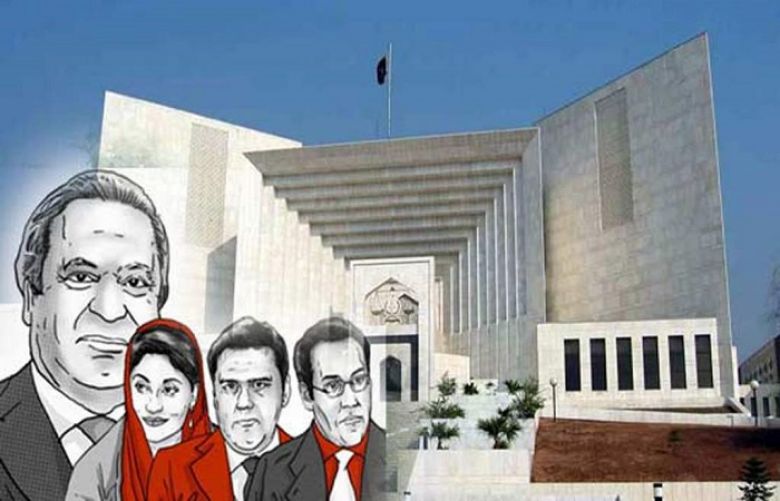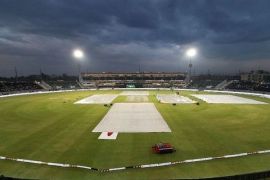Ousted prime minister Nawaz Sharif's children — Hussain, Hassan and Maryam — and his son-in-law retired Captain Mohammad Safdar have filed review petitions challenging the Supreme Court's verdict of July 28 in the Panama Papers case.
The court was requested on Friday to set aside its directive to the National Accountability Bureau (NAB) to file corruption references against Sharif's children and son-in-law relating to the Avenfield properties in London and different offshore companies.
In the meantime, the Supreme Court should stay the filing of the reference against the applicants until the review petitions are heard and decided, the petitions state.
Hussain, Hassan, Maryam and Captain Safdar have each filed two petitions — one challenging the judgement of the five-member SC bench, and the other against the verdict reserved by the three-member Panama Papers implementation bench.
The petitions have questioned the probe carried out by the six-member Joint Investigation Team (JIT) on court orders, saying it was "incomplete" and contrary to the requisites of justice.
The investigation did not merit filing of references against the petitioners, read the applications, adding that their rights will be comprised by SC's findings that were based on the JIT report.
The petitions question how the SC could order NAB to file a reference against Captain Safdar when "there is no accusation or proof against [him] for the purchase of London flats".
This is the third batch of petitions seeking a review of the verdict in the Panama Papers case. On August 15, former prime minister Nawaz Sharif filed a petition questioning his unceremonious disqualification under Article 62(1)(f) of the Constitution.
Late on August 21, Finance Minister Ishaq Dar questioned SC's authority to make a judgement about his assets being beyond his means in a petition filed under Article 184(3) of the Constitution.







